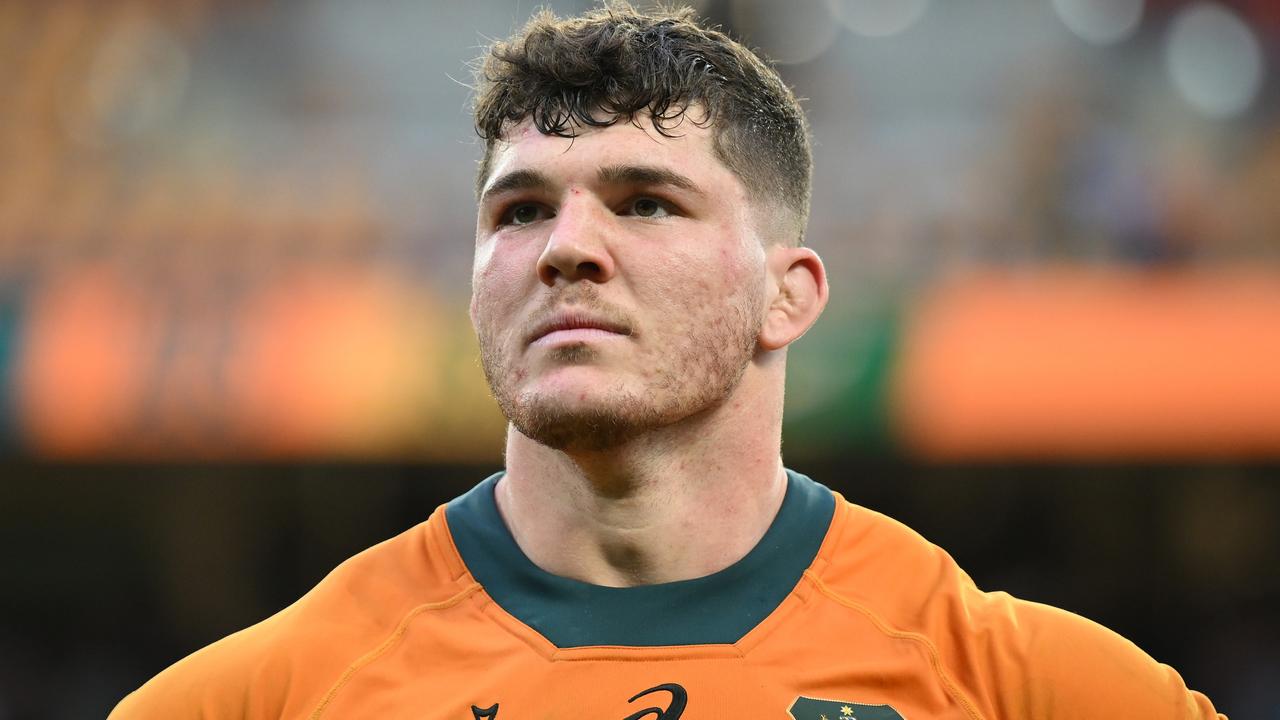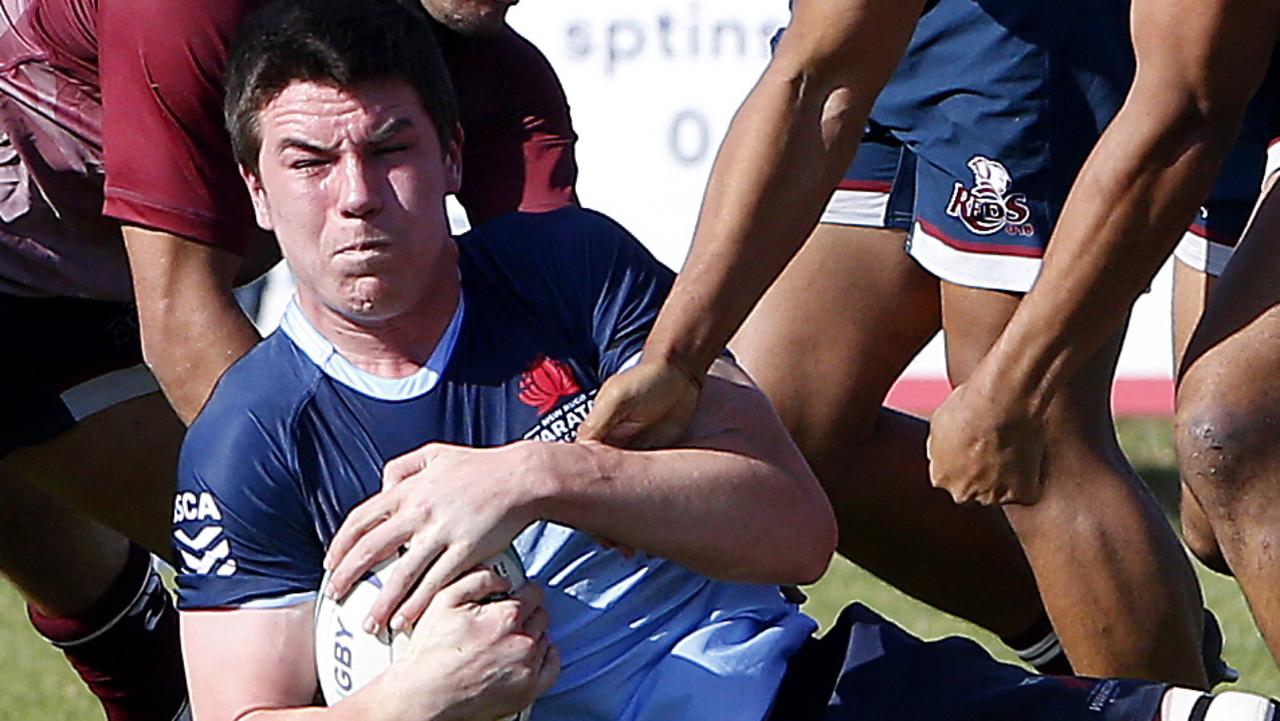Rugby World Cup: former Wallabies coach Eddie Jones outlines formula to beating England
HE’S masterminded the greatest RWC upset in history and now EDDIE JONES offers the answers to how the Wallabies are going to boot England into the abyss.
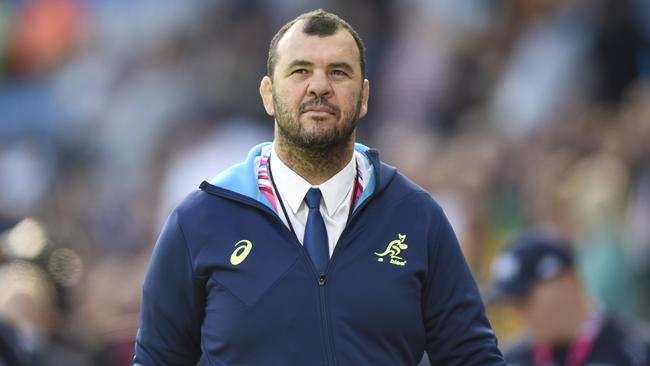
Rugby
Don't miss out on the headlines from Rugby. Followed categories will be added to My News.
HE’S masterminded the greatest Rugby World Cup upset in history and now Japan coach Eddie Jones offers the answers to how the Wallabies are going to boot England into the abyss at Twickenham.
The former Wallabies coach suffered through an extra-time loss to England on home soil in the 2003 World Cup final and senses a cruel end for another Cup host on Sunday morning (Australian time).
What is the biggest advantage that the Wallabies must maximise?
The ability to play a high-tempo, ball-in-play game is the major edge over the Poms plus the Wallabies’ attacking mindset compared to England’s muddled thinking.
NUMBERS GAME: Wallabies v England
KEY MEN: Moore, Foley your country needs you!
WALLABIES V ENGLAND: key battles to determine winner
ON THE BOX: Ultimate guide to the long weekend of sport
What is the England edge that will most trouble the Wallabies?
Potentially, it is a set piece-to-set piece game, that is a lineout-to-scrum-to-scrum dirge, where the Poms strangle the game.
Is England’s scrum dominance real or imaginary?
The scrum battle can be significant if the game is slow although the England scrum has lost power without the suspended Dylan Hartley because replacement hooker Tom Youngs is a small and weak scrummager. Wallabies prop Scott Sio has improved as has Sekope Kepu but both lack consistency and 80-minute concentration.
The French ref Romain Poite will be a key figure judging the scrum and penalties.
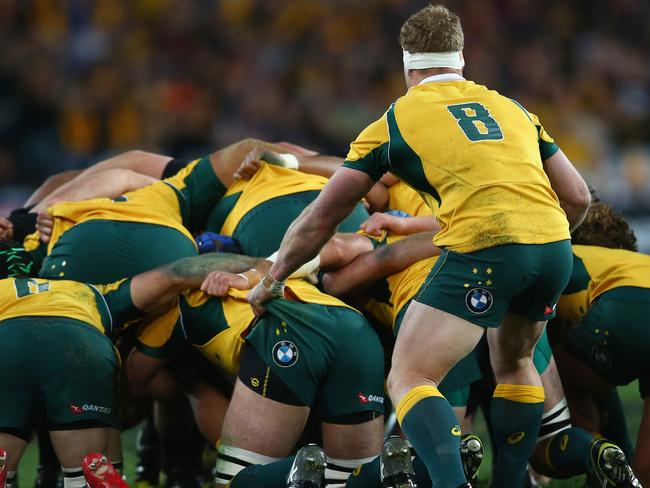
Does Will Skelton’s injury exit perversely help Australia?
Skelton had been demoted to a bits-and-pieces player and his lack of lineout skills diminished his playing time from the bench. Dean Mumm gives some ball carry plus lineout smarts. It’s a bonus for Australia with some lineout from new bench forward Ben McCalman as well.
Big defence often wins these tight clashes. Compare?
The Aussies have developed a very aggressive defence with good line speed and the twin fetchers, David Pocock and Michael Hooper, generating real jackal power to thief ball. It’s a very effective defence. The weakness is the small guys, Bernard Foley and Matt Giteau, who are both good leg tacklers so they give the gain line to the opposition.
England has usually played an up and drift defence. It’s very effective but inconsistent selection in the centres caused confusion against Wales.
Against Wales, former leagiue Sam Burgess, at inside centre, had a liking to look for the big hit while Brad Barritt, at No. 13, was worried about pace so he tended to jam. It left the wingers isolated.
Does a clarity of game style matter?
It sure does. The Wallabies are clear in how they want to play … keep the pace up, play ball-in-hand and make good decisions on kicking to keep the opposition back three deep.
England is like a bag of mixed boiled lollies … sometimes expansive, sometimes set piece-driven. It’s seen simply in the change at No. 10 where George Ford, the runner and passer, has been shunted for Owen Farrell, the very good kicker and tough defender.
Confusion reigns as coach Stuart Lancaster seems to be affected by media pressure.
Compare the halves and their threats?
For England, halfback Ben Youngs is sharp runner and Farrell a kick-based five-eighth.
The Wallabies are all the better because halfback Will Genia is looking sharper.
This will be Bernard Foley’s biggest test as a No. 10.
Whichever forward pack dominates will give the halves space and time to dictate.
Where’s the biggest X-factor in this game?
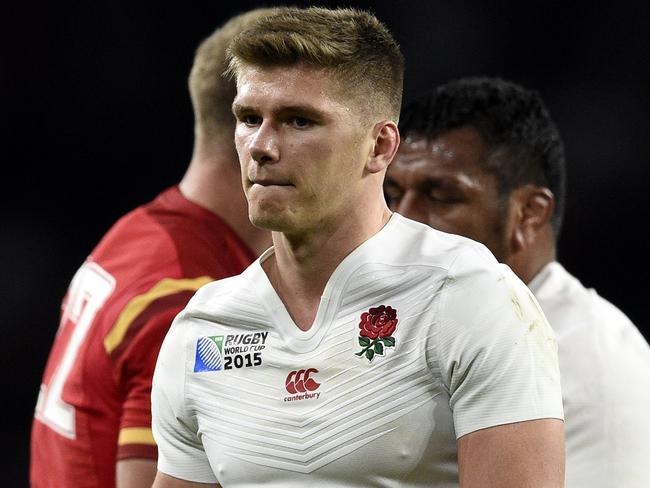
Israel Folau is the best kick returner and highball catcher in the game, strong and evasive.
For England, it is Jonny May, a winger with genuine pace, size and a nose for the tryline.
England have the faster, more dynamic wingers but are they going to be used enough to hurt the Wallabies.
How do they compare to Rob Horne and Adam Ashley-Cooper?
England’s finishers May and Anthony Watson are very fast and elusive but have poor workrates and positional flaws. Horne and Ashley-Cooper may lack pace but both read the game very well.
You weren’t afraid to play George Smith and Phil Waugh together in the 2003 World Cup final. What do you make of playing two No. 7s together in David Pocock and Michael Hooper?
Pocock and Hooper are outstanding.
England openside Chris Robshaw is really a No.6. Ben Morgan, the No. 8, does not play on the ball and Tom Wood is a lineout forward. There is not a fetcher there.
Advantage Australia.
He’s a rookie as a Test coach but do you see a coaching edge for Michael Cheika over England’s Stuart Lancaster?
Yes. Cheika is a coach and street smart.
Lancaster is your Harvard School of Business-manager type. He creates a good high-performance environment but is strategically poor.
The coaching is a big advantage for the Wallabies.
Sam Burgess … boom or bust as a centre?
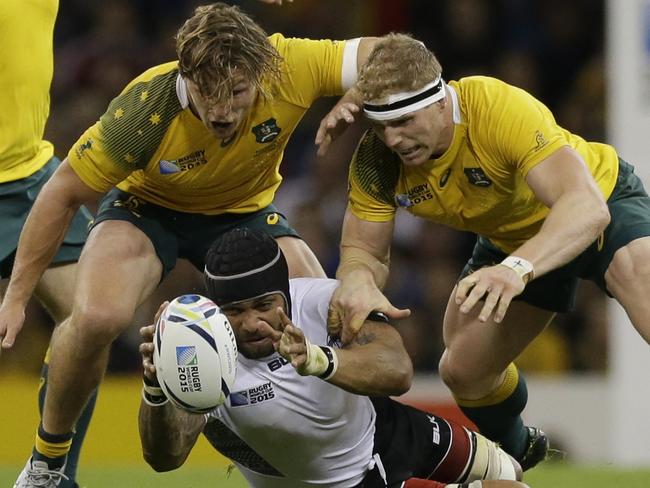
He was a non-event in the loss to Wales. “Lost” would be the most accurate term for him.
However, if he sticks to rugby he will be outstanding in two years.
What’s your biggest worry for the Wallabies?
The biggest is being too deep and lateral in attack early. The Wallabies need to win gainline early and drive the Poms back and then use the all-motion game.
What’s your biggest worry for England?
The biggest is confusion. Their selection and strategy at this World Cup has been confused.
Are England a tougher nut to crack this weekend because of relentless media criticism and being forced into a desperate corner?
Clearly they are. England has great bulldog spirit. They enjoy the underdog tag and they can become physical and menacing like they were in Marseille in 2007 when they dumped the Wallabies from the World Cup in the quarter-finals.
Are the Wallabies toughened enough for this fierce 82,000-strong cauldron after a lead-up run against the US, Fiji and Uruguay?
The Wallabies are vastly more experienced than England. The worry is that Foley is under pressure so Genia needs to step up to the plate beside him to absorb some of that heat.
Are there any secret factors like a set play that backs coach Steve Larkham has tuned behind closed doors or an England tactic?
Stevie Larkham will have a first phase play to target the No. 13 channel. It will hold up the inside centre and isolate the outside centre. A big attacking play can turn a tight game like this.
England may look to pepper winger Rob Horne with the highball and seek to regain ball on those tactics.
Finally, the only thing that really matters … who is going to win?
Wallabies by 7 but they need to get out of the blocks fast.
Originally published as Rugby World Cup: former Wallabies coach Eddie Jones outlines formula to beating England

